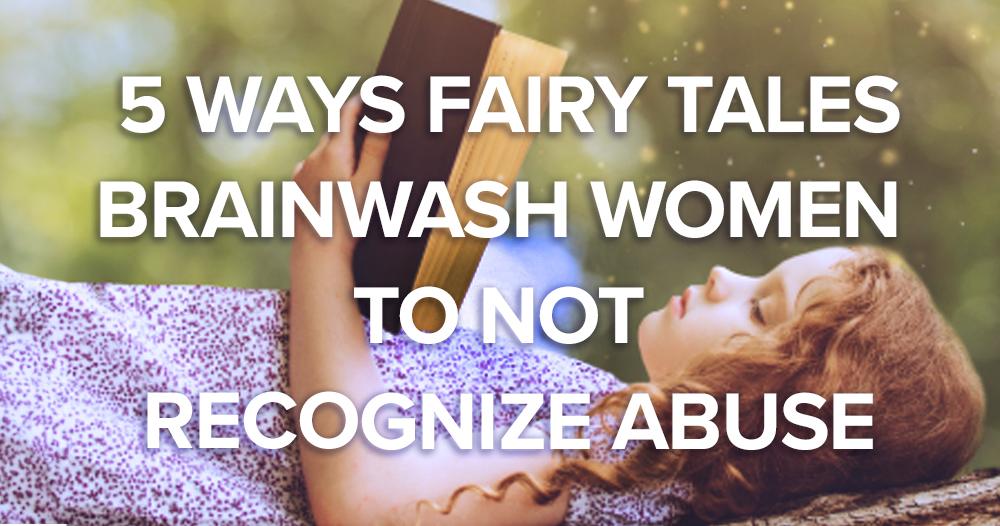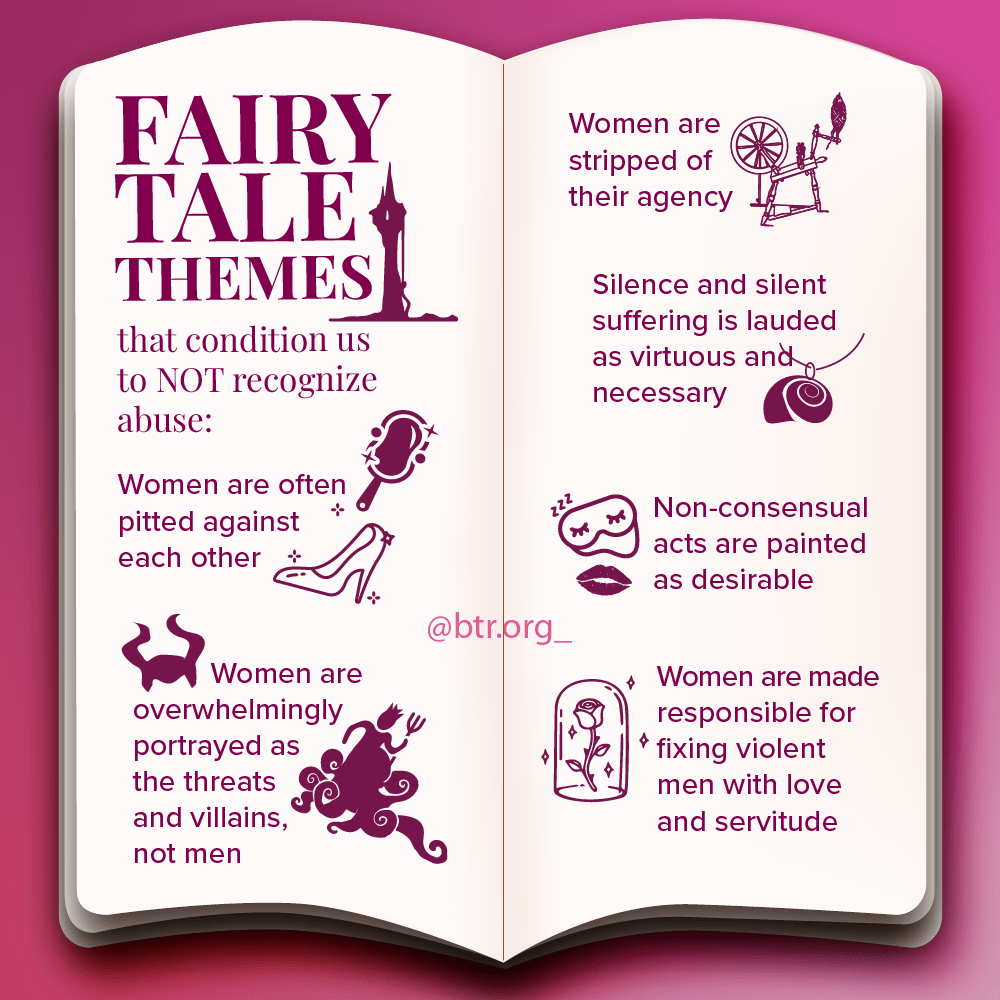Did you know the underlying themes in fairy tales brainwash women and girls to not recognize abuse?
Fairy tales are, of course, a staple of many childhoods, offering stories of magic, adventure, and often, (apparently?) love conquering all. However, a closer examination reveals an unsettling undercurrent: these tales inadvertently lead women and girls to not recognize abuse.

1. The Damsel In Distress Syndrome
Fairy tales often feature a damsel in distress, rescued by a prince or male hero.
This suggests that women are dependent on men for their salvation, often enduring suffering from an evil woman until a man resolves their situation.
This narrative reinforces the notion that women should be passive and patient, even in abusive scenarios, awaiting rescue rather than taking action.
So many women are feeling like they need a man to rescue them, most the time, their abusive husband. If you’re in this situation, you need support. Our daily, online Betrayal Trauma Recovery Support Group is a great place to start to share your story.

2. Glorification Of Sacrifice And Suffering
Fairy tales often glorify women who endure hardship and experience abuse with grace and patience, suggesting that suffering is noble and leads to a happy ending.
This dangerous message can lead individuals to believe that tolerating abuse is virtuous and a necessary path to true love or happiness.
The BTR.ORG Living Free Workshop highlights that we’ve all been exposed to these types of myths our whole lives and what we can do to get them out of our heads. Women have really enjoyed the analogies in Living Free and how it’s replaced these societal scripts that caused everyone not to recognize abuse.
3. Romanticizing Situations Where Women Don’t Recognize Abuse
Some fairy tales romanticize relationships that are abusive from the start.
Think Beauty and The Beast – characters who engage in stalking, kidnapping, or other forms of abuse are frequently depicted as men who despite these negative somehow change throughout the ordeal, which never happens in real life.

4. Lack Of Consent And Autonomy
The theme of lack of consent runs rampant in many fairy tales, with female characters often having little say in their fate or relationships. This lack of autonomy and consent is a form of psychological abuse that teaches women and girls to accept a passive role in their personal and romantic lives.
Think about how to get a man to love her, The Little Mermaid must give up her voice.
5. The Redemption Of Abusers
Fairy tales frequently conclude with the redemption of the abuser, suggesting that love can change abusive behavior. This narrative is harmful and unrealistic, as it can encourage individuals to stay in abusive relationships under the false hope of changing their partner.
Deep misogyny and harmful messages present in classic fairy tales, particularly those aimed at young girls. What are the unhealthy themes in fairy tales that condition s to not recognize abuse?
- Women are often pitted against each other – usually step mothers against their daughters
- Non-consensual acts painted as desirable – kissing someone who is unconscious
- Stripping of women’s agency and promoting silence as virtuous – giving up your fins or voice for man
- Fairy tales often portray women as threats and villains, not men – evil old hags
- Women are responsible for fixing violent men with love and servitude – we’re talking about you, Beast!


0 Comments